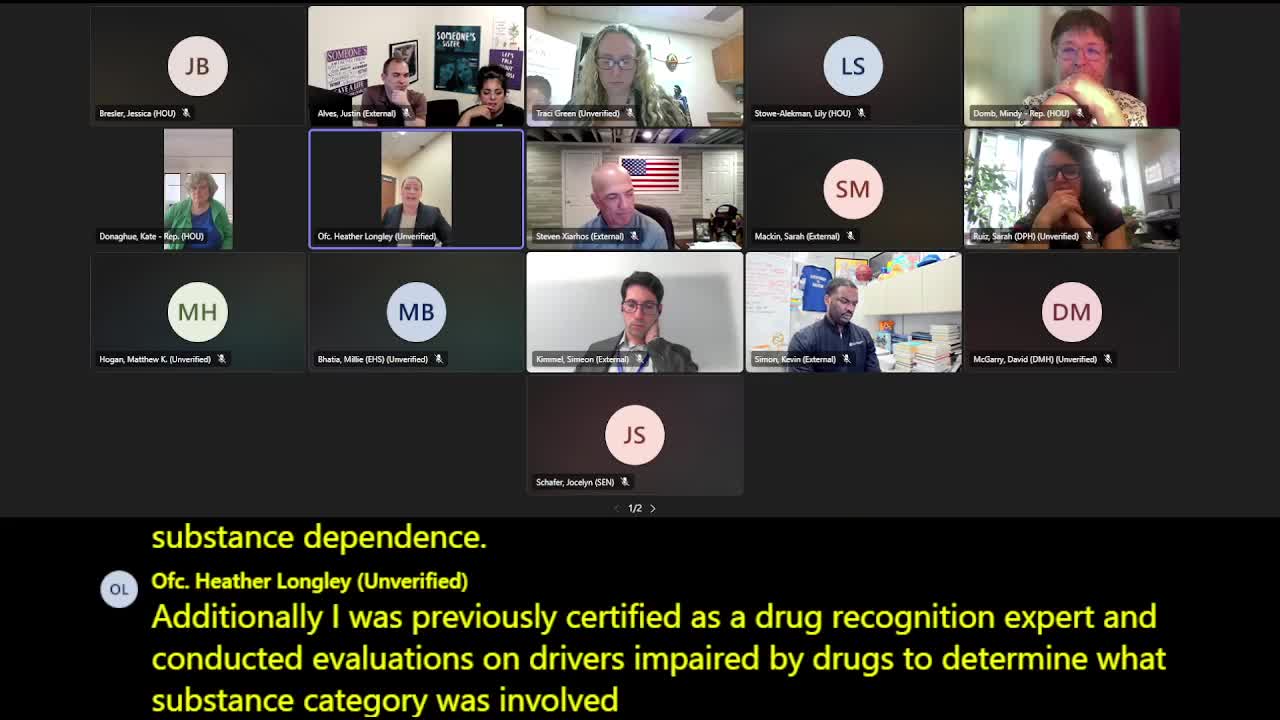Northampton officials tackle Xylazine crisis with harm reduction education and mobile care units
June 23, 2025 | 2025 Legislature MA, Massachusetts
This article was created by AI summarizing key points discussed. AI makes mistakes, so for full details and context, please refer to the video of the full meeting. Please report any errors so we can fix them. Report an error »

During a recent Massachusetts Legislature meeting, significant discussions centered on the public health effects of Xylazine, a potent central nervous system depressant increasingly found in the local drug supply. The meeting highlighted the complexities law enforcement faces when responding to overdoses involving Xylazine, particularly as it often mimics opioid effects, complicating identification and treatment.
Xylazine is frequently mixed with heroin and fentanyl, leading to confusion during overdose situations. Standard emergency protocols, which typically involve administering Narcan to reverse opioid overdoses, are ineffective against Xylazine. This gap in treatment leaves officers and medical responders feeling powerless when traditional life-saving measures fail. The meeting underscored the urgent need for increased public awareness about Xylazine's presence and its implications for overdose response.
In Northampton, local harm reduction programs, such as Hampshire Hope and Tapestry, are actively working to combat the challenges posed by Xylazine. These initiatives provide fentanyl and Xylazine test kits, although current testing methods are unreliable, raising concerns about false positives and negatives. The community is calling for improved testing accuracy to enhance safety for substance users.
Wound care issues related to Xylazine use were also a focal point, with reports of severe skin infections among users. A mobile health care unit launched by Tapestry aims to address these needs by providing wound care and education in high-risk areas. The meeting noted a decline in Xylazine use in Northampton over the past two years, attributed to harm reduction efforts and better public education, although the drug remains available in many states.
As Xylazine use decreases, other dangerous substances are emerging, including procaine and various synthetic opioids, which pose their own risks but can still be reversed with Narcan. The meeting concluded with strong recommendations for public education campaigns about Xylazine, improved access to reliable test kits, increased regulation on its sale, and continued support for harm reduction programs.
The discussions reflect a community grappling with the evolving landscape of substance use and the critical need for informed responses to protect public health.
Xylazine is frequently mixed with heroin and fentanyl, leading to confusion during overdose situations. Standard emergency protocols, which typically involve administering Narcan to reverse opioid overdoses, are ineffective against Xylazine. This gap in treatment leaves officers and medical responders feeling powerless when traditional life-saving measures fail. The meeting underscored the urgent need for increased public awareness about Xylazine's presence and its implications for overdose response.
In Northampton, local harm reduction programs, such as Hampshire Hope and Tapestry, are actively working to combat the challenges posed by Xylazine. These initiatives provide fentanyl and Xylazine test kits, although current testing methods are unreliable, raising concerns about false positives and negatives. The community is calling for improved testing accuracy to enhance safety for substance users.
Wound care issues related to Xylazine use were also a focal point, with reports of severe skin infections among users. A mobile health care unit launched by Tapestry aims to address these needs by providing wound care and education in high-risk areas. The meeting noted a decline in Xylazine use in Northampton over the past two years, attributed to harm reduction efforts and better public education, although the drug remains available in many states.
As Xylazine use decreases, other dangerous substances are emerging, including procaine and various synthetic opioids, which pose their own risks but can still be reversed with Narcan. The meeting concluded with strong recommendations for public education campaigns about Xylazine, improved access to reliable test kits, increased regulation on its sale, and continued support for harm reduction programs.
The discussions reflect a community grappling with the evolving landscape of substance use and the critical need for informed responses to protect public health.
View full meeting
This article is based on a recent meeting—watch the full video and explore the complete transcript for deeper insights into the discussion.
View full meeting
